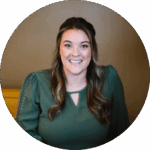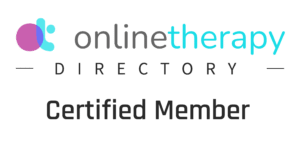Gottman Method couples therapy in Denver
Find happiness and connection with a research-based approach to relationships and couples counseling.
What is the Gottman Method of relationship counseling?
The Gottman Method is an approach to couples therapy and marriage counseling that is the result of nearly 40 years of research and experience from working with over 3,000 couples. Using this well-proven and tested method, people can find and understand patterns of behavior and interactions that separate happy couples from unhappy couples and bring this understanding to their own relationships.
Through extensive research, Dr. Gottman found that relationships work well when couples work to be best friends, understand how to manage conflict, and support each other’s hopes for the future. The Gottman Method helps couples work through conflicts and strengthen relationships using structured interventions and goal-oriented exercises. Our Denver Gottman-trained therapists can help your relationships using the same techniques that have helped thousands of couples around the world.
Our couples therapist in Denver, Taylor Damitio, has completed two levels of training in Gottman Method couples therapy—which makes her one of a very small number of therapists in Denver with this level of training. Taylor is passionate about working with couples, including LGBTQ+ couples and married couples, and helping them nurture a deeper level of understanding of themselves and each other.
The goals of using the Gottman Method are to disarm conflicting verbal communication, increase respect, intimacy, and affection, and to create a higher sense of empathy and understanding in a relationship. Instead of going to individual therapy separately, many thousands of couples have used it to improve their relationships and build shared understanding to help them grow together.
Why try the Gottman method?
The Gottman Method is one of the most respected and most popular therapy methods for couples. Learn about the work behind it, and why it’s so effective for people seeking help with their relationships. If you’re looking for a proven form of couples therapy, it could be exactly what you’re looking for.
Components of the Sound Relationship House
One of the major concepts in the Gottman Method is looking at a relationship like a house with pillars, structures, and foundations, including:
Build love maps
Help couples understand the other person's inner world, feelings, history, fears, streeses, hopes, and things that bring joy. These maps ask you how well you know your partner's inner psychological world. This component asks you how well you know your partner.
Shared fondness and admiration
Also known as the antidote for contempt, this focuses on levels of affection and respect in a relationship. The main focus on this part of the house is to strengthen both. The idea is to strengthen fondness and admiration, people express appreciation and respect.
Turn towards instead of away
This teaches and trains people in a relationship to share their needs, be aware of calls for connection, and for people in a relationship to turn towards each other. Each day provides opportunities to become closer, and everyday life provides critical building blocks of a relationship.
Positive perspective
Have a positive approach to problems by seeing them as opportunities to repair a relationship. For this to work, each person needs a positive view of their partner, so they need to commit to developing this perspective if they don't already have it. This positive perspective can lead to more effective problem solving, a reduction in escalating conflicts, and more positive interactions.
Manage conflict
It's important to think about managing conflict instead of "resolving" it. In any relationship, some level of conflict is natural and can have positive results. Conflict can be seen as a way to grow closer together, instead of further apart. This component focuses on influence, dialog, and self-soothing to help create understanding in how each person approaches perpetual and solvable problems.
Make life dreams come true
This creates an atmosphere and environment where each person feels encouraged to talk about their hopes, values, aspirations, and wants for the future. Do you know what your partner dreams of? What they want to accomplish? Or have an idea of what their bucket list would look like? When people have permission to dream and share, you can start doing and planning ways to make dreams come true, which creates more excitement and fulfillment in a relationship.
Create shared meaning
The happiest and healthiest couples have the ability to create shared meaning, purpose, and dreams. For this component, couples need to talk about and create rituals around implementing shared goals for things like children, lifestyle, volunteering, and even faith. Shared meaning, through metaphors, visions, narratives, and even myths, can help keep a relationship strong.
Trust
Many of us know this word, but this component means that you know your partner has your back in all situations. You have confidence that your partner has your best interest in mind, and that you can say, "My partner has my back and is there for me." Trust can grow as couples go about life together and share in how you support each other.
Commitment
When couples get married, it symbolizes a lifelong commitment. Even when things don't go right, strong couples can be committed to improving their relationship, cherishing their partner's positive qualities and being thankful for them. With commitment, each person commits to using the other person's energy to make the relationship work. Instead of magnifying negative qualities, this means that you can compare your partner favorably to real or imagined others.
How does the Gottman Method help couples?
Using the Gottman Method for couples counseling, couples can learn how to:
- Increase affection, respect, and feelings of closeness
- Get through and resolve conflicts, even when things feel like they’re at a standstill
- Create better, shared understanding
- Transform conflict by turning them into calmer, productive discussions
Relationship issues the Gottman Method helps address
The Gottman Method is frequently used to help couples with:
Frequent arguments and conflicts
Poor communication
Emotional distance
Couples who are close to separating
Sexual difficulties
Money issues
Parenting styles

Does the Gottman Method work?
Yes, it does. The Gottman Method of couples counseling has helped thousands and thousands of marriages become stronger, more secure, and healthier day to day.
It’s designed to help couples across all economic, racial, sexual orientation, and cultural sectors. It’s been shown to be effective for treating same-sex relationships as well. As an inclusive therapy practice, we welcome people as they are for couples counseling.
With its extensive background in research and actual real-life practice, it has been proven to help couples build stronger connections and intimacy in their relationships.

Healing may not be so much about getting better, as about letting go of everything that isn’t you – all of the expectations, all of the beliefs – and becoming who you are.
Rachel Naomi Remen
Meet our therapists
As a therapist-owned practice, we care about helping you heal, grow, and thrive. We take a client-focused approach to counseling and approach each session with a commitment to your progress and growth.
Availability
We’re always accepting new clients at our conveniently located offices in Denver, Greenwood Village, Lone Tree, and Arvada. All of our therapists can meet with clients online.
We specialize in you
You are welcome here. Because we have a large team with a wide range of specialties and trainings, we work with clients of all ages, backgrounds, and life stages.
We can match you with a male or female therapist who matches your goals, location, and schedule. If you have a preference for gender, age, religious background, or a person with a specific type of training or life experience, we can match you with a therapist you feel comfortable with.
Trained in effective therapy modalities
To support your mental health journey, our team is trained in some of the most effective forms of therapy available today, including EMDR, Ketamine-Assisted Psychotherapy, Brainspotting, CBT, DBT, and IFS.
Whether you’re looking for help with anxiety, depression, trauma, or want to better understand your relationship and attachment styles, we can help.
Insurance information
We’re out of network with insurance and Tricare and are unable to take Medicaid or Medicare.
Unlike many Denver therapy practices, we don’t charge separate intake or administration fees or charge more for your first session or specialized therapy methods like EMDR.
Get matched with a therapist
Contact us today, and one of our therapists will reach out to you directly, usually the same day.








































